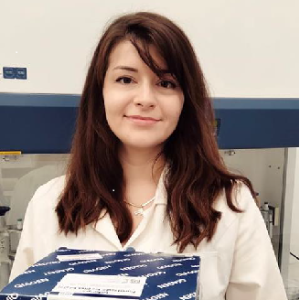Title : Influence of bisphenol A and its analogues on human gut microbiota composition and metabolic activity in an In Vivo model
Abstract:
Food contamination by chemicals migrating from Food Contact Materials (FCM), such as bisphenol A (BPA) and its analogs (BPS, BPF, TMBPF), is a significant concern. Recent studies have highlighted potential interactions between these xenobiotics and the gut microbiota (GM), which can influence their biological effects. This research aimed to investigate the impact of bisphenols (BPS, BPF, and TMBPF) on human GM composition, taxonomic changes, and metabolome profiles. We conducted in vitro batch cultures using GM samples from healthy donors (n = 15). 16S rRNA amplicon sequencing revealed significant differences in β diversity (Bray-Curtis dissimilarity) between control and treatment groups. There was a significant decrease in α diversity (Shannon Effective count) in the BPA, BPS, and BPF groups compared to the control. BPA and BPF treatments also resulted in a significant reduction in Effective Microbial Richness. All bisphenols studied decreased the relative abundance of the Bacteroidetes phylum. BPA, BPS, and BPF reduced total SCFA concentrations in GM post-fermentation fluids. Untargeted metabolome profiling using LC-HR-MS/MS (Orbitrap) showed that BPA, BPS, and BPF significantly impacted the gut metabolome. After 48 hours of GM culturing with bisphenols, quantitative analysis (LC-HR-MS/MS) indicated significant reductions in BPA, BPS, and TMBPF concentrations (21%, 12%, and 89% respectively). Additionally, we observed a significant decrease in the estrogenic activity of BPF after 48 hours of cultivation with human GM. Metabolites from gut microbiota cultured with BPA and BPF significantly decreased cell viability compared to the control. Our results provide evidence in favor of a multidirectional effect of bisphenols on human GM.
Audience Take Away:
1. Attendees will gain an understanding of how bisphenol exposure alters the gut microbiota, specifically noting changes in microbial diversity and the relative abundance of key bacterial phyla.
2. The presentation will detail how bisphenols influence the metabolome of the gut microbiota, showcasing significant shifts in metabolite profiles and their potential biological implications.
3. The findings will emphasize the need for stringent regulatory policies concerning bisphenol usage in food contact materials, highlighting potential risks to human health.
4. Researchers can leverage these findings to explore further the interactions between environmental chemicals and the gut microbiota. The methodologies discussed can be applied to their studies, enhancing the depth and scope of their research.
5. Regulatory professionals can use this information to advocate for stricter safety standards and better evaluation protocols for food contact materials, ensuring consumer safety.
6. Encourages collaboration between microbiologists, toxicologists, chemists, and regulatory bodies, fostering an interdisciplinary approach to addressing complex health issues.



